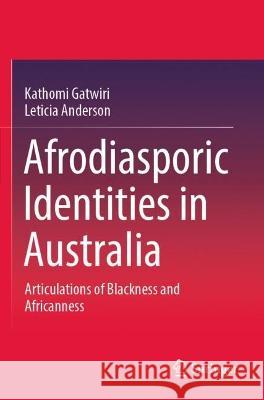Afrodiasporic Identities in Australia » książka
topmenu
Afrodiasporic Identities in Australia
ISBN-13: 9789811942846 / Angielski / Miękka / 2023
Afrodiasporic Identities in Australia
ISBN-13: 9789811942846 / Angielski / Miękka / 2023
cena 402,53
(netto: 383,36 VAT: 5%)
Najniższa cena z 30 dni: 385,52
(netto: 383,36 VAT: 5%)
Najniższa cena z 30 dni: 385,52
Termin realizacji zamówienia:
ok. 22 dni roboczych.
ok. 22 dni roboczych.
Darmowa dostawa!
This book explores the Afro-diasporic experiences of African skilled migrants in Australia. It explores research participants' experiences of migration and how these experiences inform their lives and the lives of their family. It provides theory-based arguments examining how mainstream immigration attitudes in Australia impact upon Black African migrants through the mediums of mediatised moral panics about Black criminality and acts of everyday racism that construct and enforce their 'strangerhood'.
The book presents theoretical writing on alternate African diasporic experiences and identities and the changing nature of such identities. The qualitative study employed semi-structured interviews to investigate multiple aspects of the migrant experience including employment, parenting, family dynamics and overall sense of belonging. This book advances our understanding of the resilience exercised by skilled Black African migrants as they adjust to a new life in Australia, with particular implications for social work, public health and community development practices.











